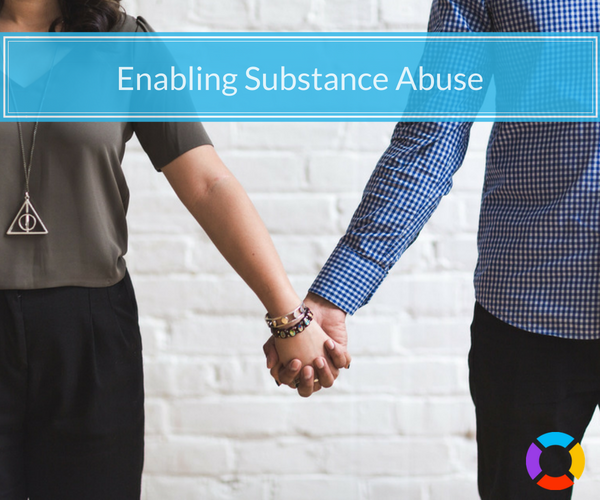Am I an Enabler?

If you are concerned about being an enabler for a loved one who has been struggling with substance abuse, it means you care about the person and you don’t want to assist them in continuing their drug use unabated. This is an important place to be, and you can begin to consider whether or not you can change some of your actions in order to better help your loved one put an end to their substance abuse.
What Is Enabling Behavior?
According to the University of Pennsylvania Health System, enabling behaviors are the ones that support an addicted individual’s substance abuse. Often, people who are enabling another’s addiction do not realize they are doing so, and instead, they believe they are just trying to protect their loved one. In truth, protecting someone from the consequences of their substance abuse can actually make using easier and make them more likely to keep abusing drugs and alcohol.
If you are ready to consider your own behaviors and how they might be contributing to your loved one’s substance abuse, it is important to remember that this is a helpful action. You should never blame someone’s addiction on yourself, but it is necessary to think about the ways in which you may—consciously or unconsciously—be supporting their dangerous substance use.
Common Enabling Behaviors and How to Recognize Them
One of the most common behaviors is denial. Denial is typical among addicts as well because they don’t want to admit that they have a problem (Frontiers in Psychiatry). There is a strong stigma associated with addiction, and they may constantly downplay the issue, saying things like, “I’m not as bad as someone else” or “It could be worse.” However, if you find yourself saying this about a loved one’s drug use, you are making it easier for them to continue using by enabling their dangerous behavior.
There are many other types of enabling, including
Justifying their use
You tell yourself the individual has a hard job or a stressful life and needs drugs to take the edge off. You may agree with them that they deserve to use, which is really just a rationalization.
Focusing on other things
When you spend time with the individual, you focus on anything except their substance use. If you don’t have to think about it, then you won’t have to talk about it.
Avoiding them
If you don’t have to see the individual, you won’t have to consider how bad things have gotten in their life.
Protecting them
This may manifest as picking up the pieces and taking over their responsibilities when they cannot. It may also entail lying to others about the problem so they will not see the individual in a bad light.
Parenting them
Many people tend to act parental in a situation of addiction, and if you are not the addict’s parent—or if the individual is your adult child—this could be enabling them. Think about why you’re doing it. Is it to feel better than they are? If so, you are protecting yourself and enabling them.
Using with them
According to a study by the Journal of Substance Abuse Treatment, the majority of romantic partners of addicts use alcohol or drugs along with them. If you have started using drugs or drinking alcohol with the person in order to protect them from themselves, this is serious enabling. You may have thought, “I can make sure they don’t overdose or use too much.” But this is just allowing them to continue using in a safe, consequence-free way.
Restricting them
If you start to control the person—including telling them who they can and cannot see or what they can do—you may be doing it to gain your own sliver of control over the issue. If this is your aim, this is enabling.
Constant criticizing
No addict responds positively to constant lecturing about their mistakes. In many cases, they will use it as an excuse to ignore your advice because they will say nothing they do is ever good enough for you.
Blaming others
You may think this is all the fault of a friend of theirs who started using with them or of their boss who keeps them working long hours. But remember your loved one made the choice to start using at the beginning, even if they can no longer choose to stop.
Playing the savior
Your loved one needs money, and you always offer it, no questions asked. They need bailing out of a jam, and you’re the first one they call. If you constantly shield them from problems, they will never have a reason to stop.
Not following through
When you give your loved one a consequence based on their refusal to seek help, you must stick with it. Otherwise, they will promise to go into treatment and then never do it.
Tolerating their use
Saying things like “If I can just wait a little longer, I’ll ask them to stop,” or “I don’t want to upset them so I’ll just handle it” is always an example of enabling.
When you start to put the pieces together, you can see how easy it is to become an enabler and how it is hard to avoid these actions all the time. However, once you start to consider how you are acting and what your loved one needs from you, you can really begin to put everything in perspective and avoid this behavior in the future. Then, you may want to consider talking to your loved one or even staging an intervention to try and get them to seek the treatment they need.
Sources
- University of Pennsylvania Health System. (2003). Stairway to Recovery: Enabling Behaviors.
- Frontiers in Psychiatry. (2013). The Shame of Addiction.
- Journal of Substance Abuse Treatment. (2004). Enabling Behavior in a Clinical Sample of Alcohol-Dependent Clients and Their Partners.

